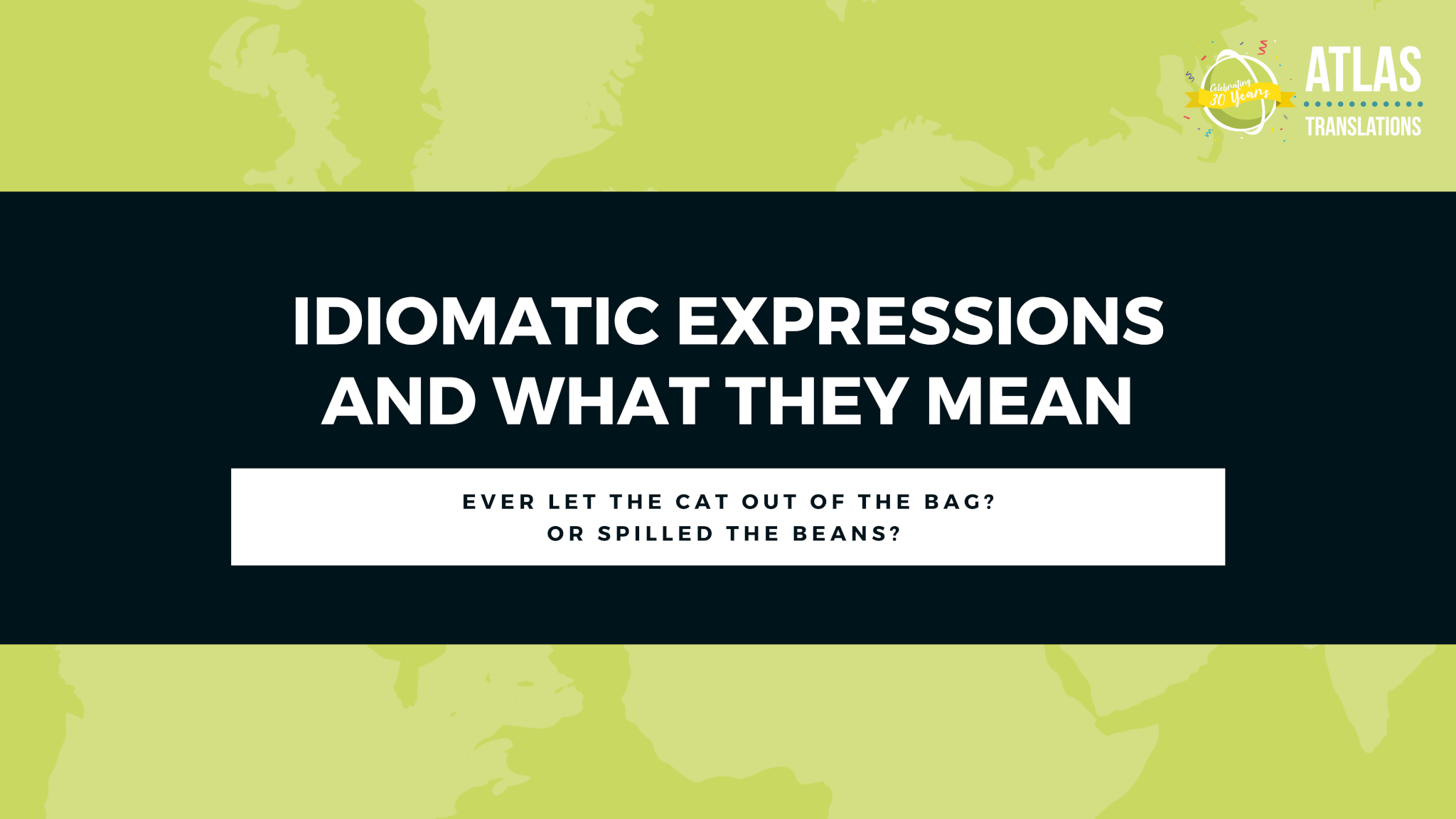Idiomatic Expressions and What They Mean

Have you ever let the cat out of the bag? Or spilled the beans? Perhaps you decided to go on a wild goose chase rather than address the elephant in the room! It may have all been a storm in a teacup… After all, you’ve got bigger fish to fry! Whether you found reading that a piece of cake or managed it by the skin of your teeth, we’ve all encountered strange expressions in our everyday conversations.
But where do these bizarre idioms come from and what do they really mean? Let’s take a look at some of the weirdest expressions you’ll find and their hidden meanings.
Feeling ‘under the weather’ – feeling ill
This phrase actually has a maritime origin. Sickly sailors were encouraged to sit beneath the bow at the front of the ship to protect them from stormy conditions – meaning they were literally going to be ‘under the weather’!
To ‘let your hair down’ – to relax
This saying has its origins in the 17th century, where upper-class women were expected to wear their hair in elaborate styles that were usually pinned up. At the end of a long day, women were finally able to relax and let their hair down.
To ‘bite the bullet’ – to do something you’ve been avoiding
This first recorded use of this expression was in a Rudyard Kipling novel, The Light That Failed, from way back in 1891. It is said to come from the practice of soldiers biting a bullet to help stem the pain during battlefield surgeries conducted without the use of anesthetic, and similar phrases may have been said as early as 1796.
‘Burying the hatchet’ – to make peace
This phrase has a surprisingly literal origin, and dates back to the Native American practice of burying weapons in the ground during times of peace. It was most common among people of the Iroquois nation, and was first recorded by European settlers in the 1600s.
To ‘ride shotgun’ – to sit next to the driver in a car
This saying has its origins in the Wild West! Back when bandits were a big problem for people travelling by stagecoach across the western United States, the person sitting next to the driver would carry a weapon – usually a large shotgun – to ward off any would-be thieves.
English isn’t the only language with more than its fair share of wacky idioms and expressions. Here are a few of our favourites in other languages, too.
‘Les carottes sont cuites!’ – The carrots are cooked!
This French idiom is used to talk about a situation which cannot be changed.
‘Ter macaquinhos na cabeçachuva’ – To have little monkeys inside your head
This Portuguese expression means to have a crazy idea!
‘Aus einer Mücke einen Elefanten machen’ – An elephant made out of a fly
This brilliant German phrase is used when someone makes a big deal out of nothing!
Expressions in Translation
The most obvious way to translate an idiomatic expression is to find an equivalent idiom in the target language. The person who wrote the original text will have included the idiom for a reason, so it makes sense to try and follow their lead by incorporating a suitable equivalent into your translation.
This is not always possible, however, and the expression that you have stumbled across is basically untranslatable. In this instance, all you can do is to convey the meaning of the idiom. The style and voice of your translation may be slightly different to the original as a result, but it is better to get across the meaning than try to create an idiom where one doesn’t exist.
If you need to convey your message in another language, get in touch for a chat to see how we can help you out.















